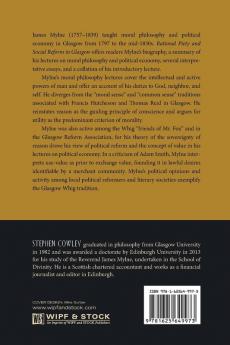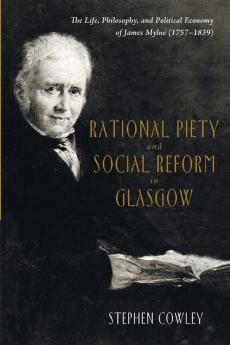by
English
Paperback
₹2990
₹3330
10.21% OFF
(All inclusive*)
Delivery Options
Please enter pincode to check delivery time.
*COD & Shipping Charges may apply on certain items.
Review final details at checkout.
Looking to place a bulk order? SUBMIT DETAILS
About The Book
Description
Author
James Mylne (1757-1839) taught moral philosophy and political economy in Glasgow from 1797 to the mid-1830s. Rational Piety and Social Reform in Glasgow offers readers Mylnes biography a summary of his lectures on moral philosophy and political economy several interpretative essays and a collation of his introductory lecture. Mylnes moral philosophy lectures cover the intellectual and active powers of man and offer an account of his duties to God neighbor and self. He diverges from the moral sense and common sense traditions associated with Francis Hutcheson and Thomas Reid in Glasgow. He reinstates reason as the guiding principle of conscience and argues for utility as the predominant criterion of morality. Mylne was also active among the Whig friends of Mr. Fox and in the Glasgow Reform Association for his theory of the sovereignty of reason drove his view of political reform and the concept of value in his lectures on political economy. In a criticism of Adam Smith Mylne interprets use-value as prior to exchange value founding it in lawful desires identifiable by a merchant community. Mylnes political opinions and activity among local political reformers and literary societies exemplify the Glasgow Whig tradition. Stephen Cowley graduated in philosophy from Glasgow University in 1982 and was awarded a doctorate by the Edinburgh University School of Divinity in 2013 for his study of the Reverend James Mylne. He is a Scottish Chartered Accountant and works as a financial journalist and editor in Edinburgh.
Delivery Options
Please enter pincode to check delivery time.
*COD & Shipping Charges may apply on certain items.
Review final details at checkout.
Details
ISBN 13
9781625649973
Publication Date
-12-06-2015
Pages
-316
Weight
-430 grams
Dimensions
-152x229x16.79 mm











